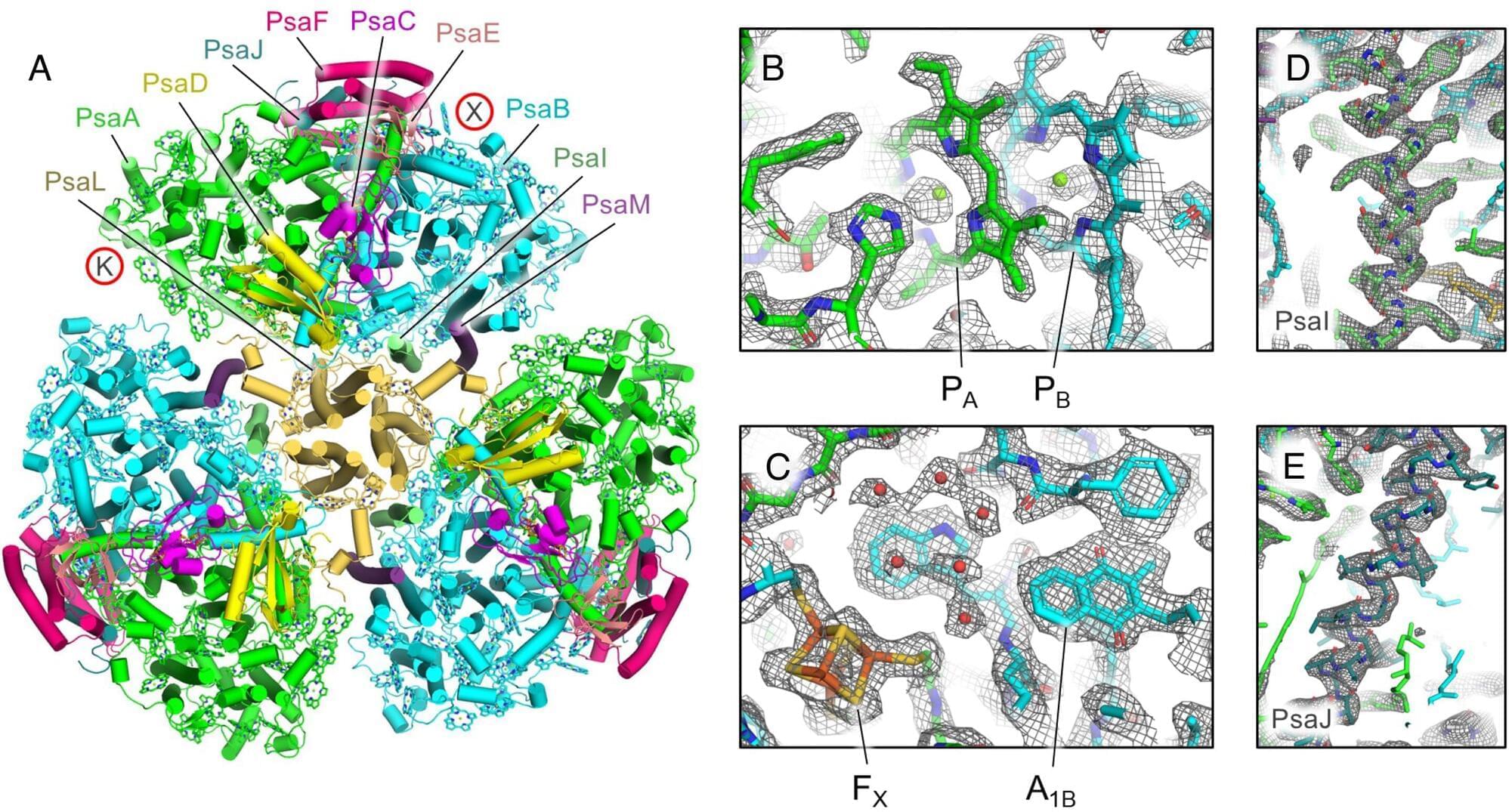An international team of scientists have unlocked a key piece of Earth’s evolutionary puzzle by decoding the structure of a light-harvesting “nanodevice” in one of the planet’s most ancient lineages of cyanobacteria.
The discovery, published in Proceedings of the National Academy of Sciences, provides an unprecedented glimpse into how early life harnessed sunlight to produce oxygen—a process that transformed our planet forever.
The team, including Dr. Tanai Cardona from Queen Mary University of London, focused on Photosystem I (PSI), a molecular complex that converts light into electrical energy, purified from Anthocerotibacter panamensis —a recently discovered species representing a lineage that diverged from all other cyanobacteria roughly 3 billion years ago.
